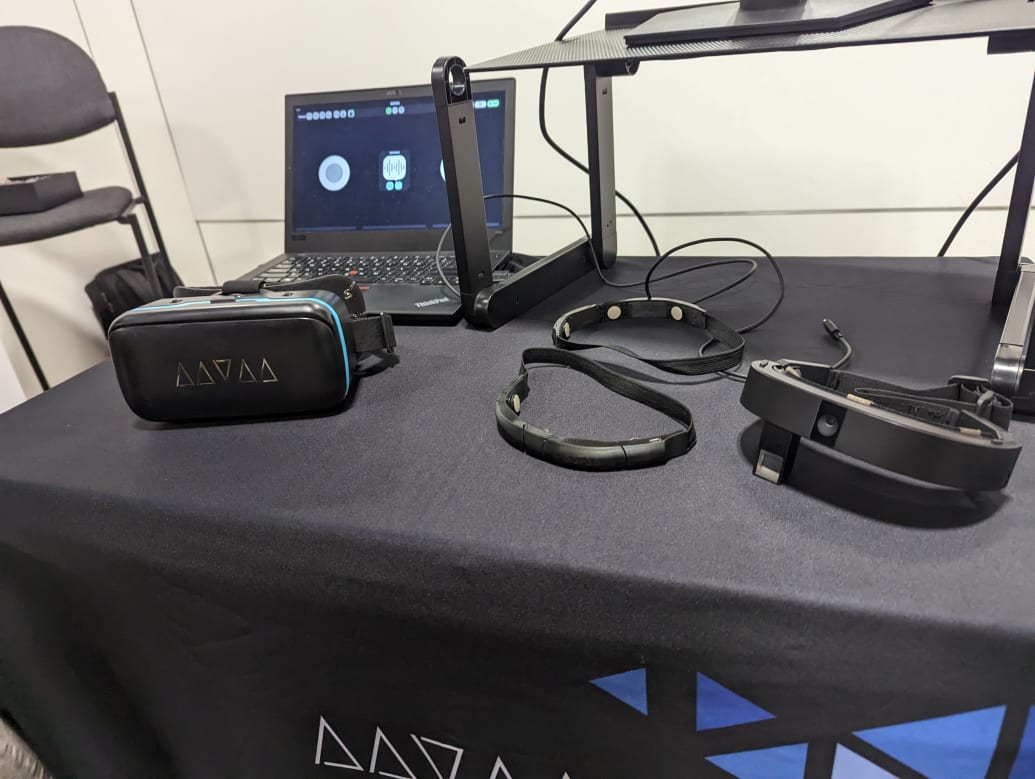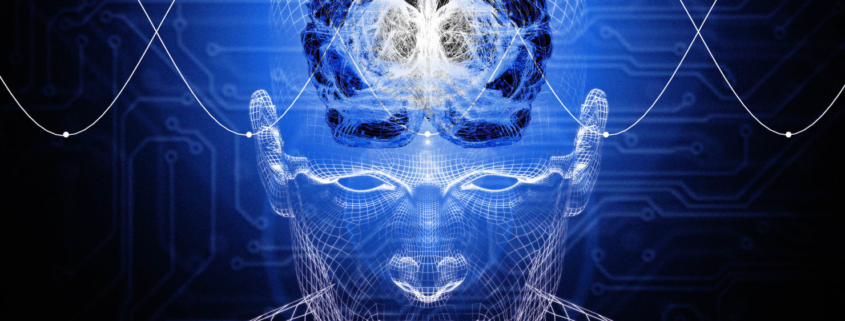Why This Brain-Hacking Technology Will Turn Us All Into Cyborgs
It felt like magic: As I moved my head and eyes across the computer screen, the cursor moved with me. My goal was to click on pictures of targets on the display. Once the cursor reached a target, I would blink causing it to click on the target—as if it were reading my mind.
Of course, that’s essentially what was happening. The headband I was wearing picked on my brain, eye, and facial signals. This data was fed through an AI-software that translated it into commands for the cursor. This allowed me to control what was on the screen, even though I didn’t have a mouse or a trackpad. I didn’t need them. My mind was doing all of the work.
“The brain, eye, and face are great generators of electricity,” Naeem Kemeilipoor, the founder of brain-computer interface (BCI) startup AAVAA, told The Daily Beast at the 2024 Consumer Electronics Show. “Our sensors pick up the signals, and using AI we can interpret them.”
The headband is just one of AAVAA’s products that promises to bring non-invasive BCIs to the consumer market. Their other devices include AR glasses, headphones, and earbuds that all essentially accomplish the same function: reading your brain and facial signals to allow you to control your devices.
While BCI technology has largely remained in the research labs of universities and medical institutions, startups like AAVAA are looking for ways to put them in the hands—or, rather, on the heads—of everyday people. These products go beyond what we typically expect of our smart devices, seamlessly integrating our brain with technology around us. They also offer a lot of hope and promise for people with disabilities or limited mobility—allowing them to interact with and control their computers, smartphones, and even wheelchairs.
However, BCIs also blur the lines between the tech around us and our very minds. Though they can be helpful for people with disabilities, their widespread use and adoption raises questions and concerns about privacy, security, and even a user’s very personhood. Allowing a device to read our brain signals throws open the doors to these ethical considerations so, as they steadily become more popular, they could become more dangerous as well.



